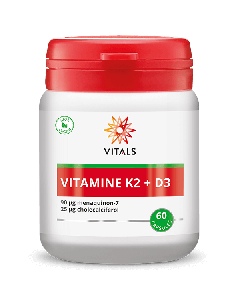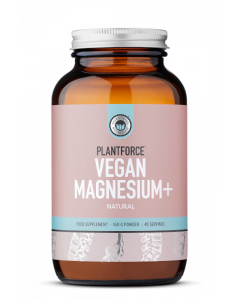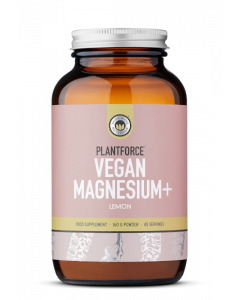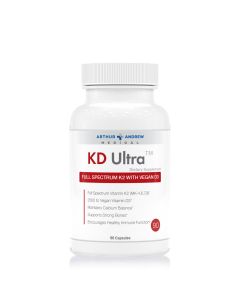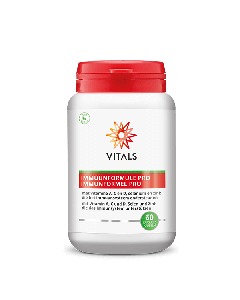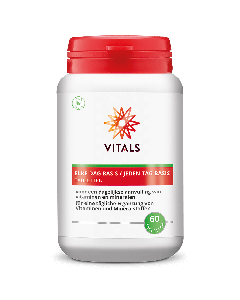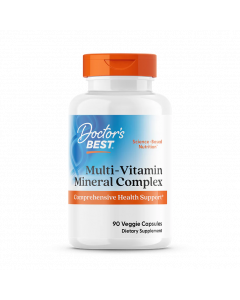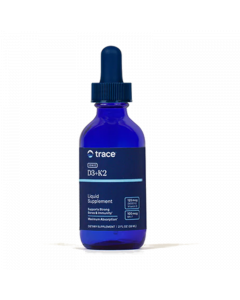-
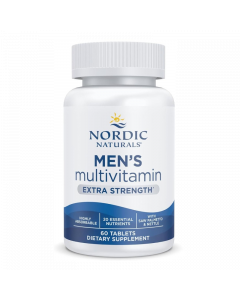 Nordic Naturals - Men's Multivitamin Extra Strength - 60 tabletsOut of stockSpecial Price € 39.95 € 44.95
Nordic Naturals - Men's Multivitamin Extra Strength - 60 tabletsOut of stockSpecial Price € 39.95 € 44.95 -
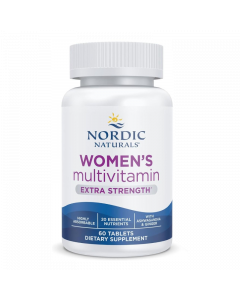 Nordic Naturals - Women's Multivitamin - 60 tabl - CLEAROUTOut of stockSpecial Price € 36.95 € 44.95
Nordic Naturals - Women's Multivitamin - 60 tabl - CLEAROUTOut of stockSpecial Price € 36.95 € 44.95
- Shipped today!
- Free shipping from € 45
- Postpay possibility
- Review score 9.4
- Earn reward points
- Shipped today!
- Free shipping from € 45
- Postpay possibility
- Review score 9.4
- Earn reward points
- Home
- Vitamins & Supplements
- Vitamins
- Vitamin K


What is Vitamin K?
Vitamin K is the name of a group of fat-soluble compounds (vitamins) that are essential for a variety of functions in the body. Of these phylloquinone is the main type in our diet and is important for bone building, blood-clotting and as a coenzyme for many other reactions. Very interestingly, the K was derived from the German word 'Koagulation' which represents the clotting of blood, which was the first-discovered role of vitamin K (Examine.com).
What is Vitamin K good for?
Vitamin K, especially phylloquinone (Vitamin K1), acts as a coenzyme for a range of chemical reactions in the body (Source: NIH). The main reaction is the production of clotting proteins that are essential for minimizing blood losses when our vessels become injured.
- Supports normal blood clotting
- Supports normal bone production
When should you take Vitamin K?
Vitamin K is a fat-soluble vitamin and so should always be taken along with a source of fats. Most vitamin K supplements are in the form of multi-vitamins or packaged in with other fat-soluble compounds. However, to ensure efficient and rapid absorption, it is recommended to consume these with your meals.
What Vitamin K supplement is best?
In terms of vitamin K, because there are many different types, it is important to check the chemical form. For most supplements, it will be in the form of vitamin K1 (phylloquinone) or the synthetic form of K1 (Source: NIH).
We like to recommend supplements that have minimal ingredients, natural sources, and delicate production methods for vitamin K. As a rule of thumb, you should always ensure that the brand you are considering is reputable and have a long-standing track record of high-quality assurance and satisfied clientele.
What foods have Vitamin K?
There are several foods that provide vitamin K1 (phylloquinone) including green, leafy vegetables, vegetable oils, and fruit (Source: NIH). In terms of menaquinones, there are considerable amounts in meat, dairy, and eggs (Source: NCBI). Interestingly, the Japanese dish Natto, which is a fermented soybean delicacy, contains high amounts of menaquinones (Source: Examine.com). Unfortunately, it is quite difficult to consume enough vitamin K on a daily basis, unless an individual often eats the above sources e.g. Natto.
Key Health Aspects of Vitamin K
Because vitamin K is an essential nutrient, we must obtain it via the diet. Its roles in the body are numerous. The two main roles are as a coenzyme for the production or altering of clotting proteins and for the support of bone health. These are both approved health claims (Source: EU Article 13).
Blood Clotting and Coagulation
Vitamin K is an essential coenzyme for a range of proteins. Put simply, a coenzyme is an accompanying compound that facilitates chemical reactions that activate or fully form key proteins in the body. Vitamin K is a coenzyme for a range of proteins that play major roles in normal blood clotting (Source: Examine.com).
Bone Health
As mentioned, vitamin K is a coenzyme for the formation or altering of many different proteins. One of these proteins is Osteocalcin which plays a major role in bone remodeling (building of bone). Supporting this, some studies have identified links between insufficient vitamin K intakes and lower bone mineral density (Source: NCBI).
Do I need to Supplement with Vitamin K?
There are not a wide range of foods that are rich in vitamin K and so it can be difficult to reach your daily needs. Adding a vitamin K-rich dish such as Natto to your diet, or considering a supplement might be a viable option for those that do not consume many fruits and vegetables.

